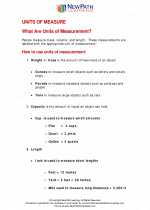Units of Measure -> atmospheric pressure
Atmospheric Pressure
Atmospheric pressure is the force exerted by the weight of the air above an area on the Earth's surface. It is caused by the gravitational attraction of the planet and the motion of the air in the atmosphere.
Units of Measurement
Atmospheric pressure is commonly measured in units called millibars (mb) or inches of mercury (inHg).
Effects of Atmospheric Pressure
Changes in atmospheric pressure can affect weather patterns and can also have an impact on human and animal health. High pressure systems are generally associated with fair weather, while low pressure systems are often linked to cloudy, rainy, or stormy conditions.
Measuring Atmospheric Pressure
An instrument called a barometer is used to measure atmospheric pressure. There are two main types of barometers: mercury barometers and aneroid barometers.
Summary
Atmospheric pressure is the force exerted by the weight of the air above a given area on the Earth's surface. It has important effects on weather, health, and various natural phenomena.
.◂Math Worksheets and Study Guides Third Grade. Units of Measure

 Worksheet/Answer key
Worksheet/Answer key
 Worksheet/Answer key
Worksheet/Answer key
 Worksheet/Answer key
Worksheet/Answer key
 Worksheet/Answer key
Worksheet/Answer key
